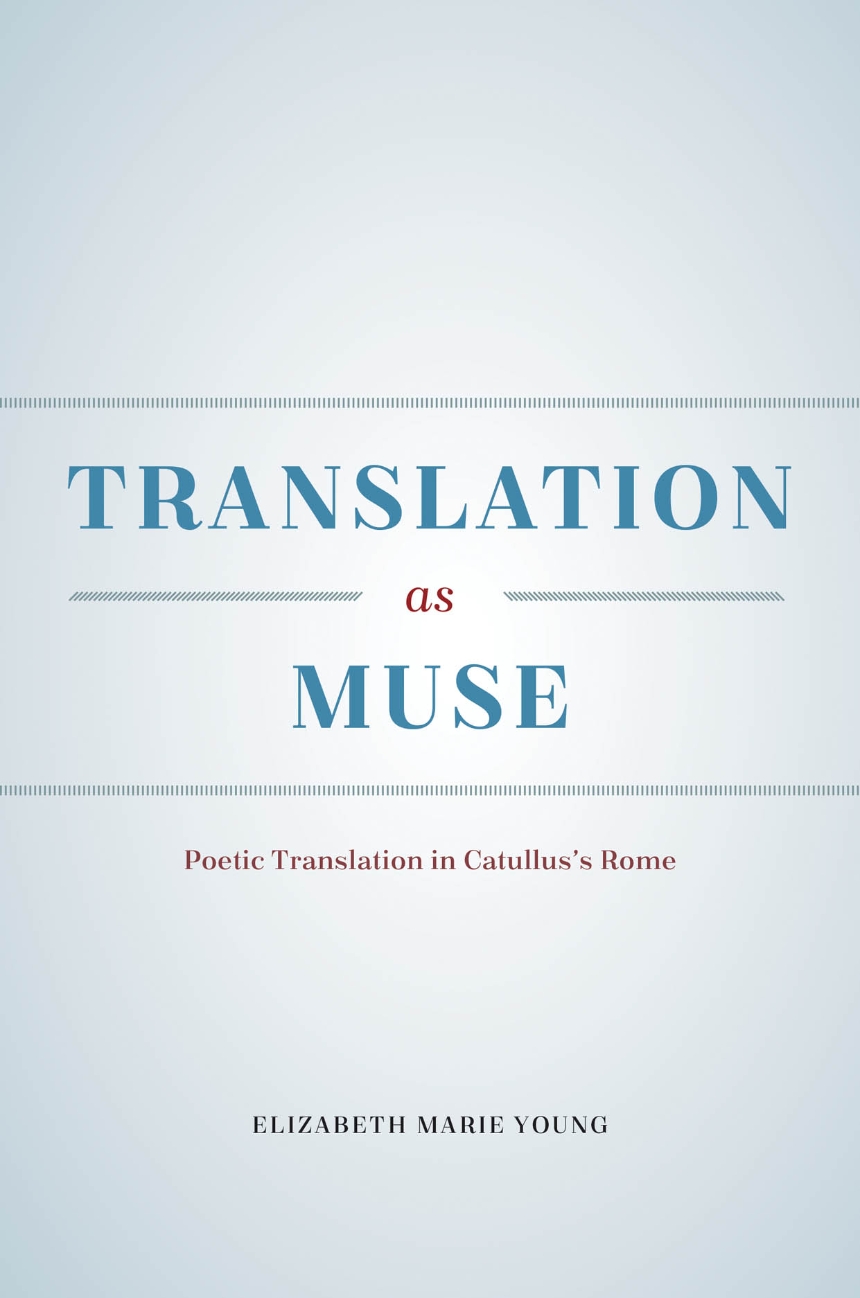Translation as Muse
Poetic Translation in Catullus’s Rome
Publication supported by the Bevington Fund
Poetry is often said to resist translation, its integration of form and meaning rendering even the best translations problematic. Elizabeth Marie Young disagrees, and with Translation as Muse, she uses the work of the celebrated Roman poet Catullus to mount a powerful argument that translation can be an engine of poetic invention.
Catullus has long been admired as a poet, but his efforts as a translator have been largely ignored. Young reveals how essential translation is to his work: many poems by Catullus that we tend to label as lyric originals were in fact shaped by Roman translation practices entirely different from our own. By rereading Catullus through the lens of translation, Young exposes new layers of ingenuity in Latin poetry even as she illuminates the idiosyncrasies of Roman translation practice, reconfigures our understanding of translation history, and questions basic assumptions about lyric poetry itself.
Catullus has long been admired as a poet, but his efforts as a translator have been largely ignored. Young reveals how essential translation is to his work: many poems by Catullus that we tend to label as lyric originals were in fact shaped by Roman translation practices entirely different from our own. By rereading Catullus through the lens of translation, Young exposes new layers of ingenuity in Latin poetry even as she illuminates the idiosyncrasies of Roman translation practice, reconfigures our understanding of translation history, and questions basic assumptions about lyric poetry itself.
288 pages | 6 x 9 | © 2015
History: Ancient and Classical History
Literature and Literary Criticism: Classical Languages
Reviews
Table of Contents
Acknowledgments
Introduction Finding Catullus in Translation
1 The Task of Translation in Catullus
2 Excavating the Poetic Emporium: Material and Cultural Capital in the Polymetrics
3 Catullus 4 and the Demographics of Late Republican Alexandrianism
4 Intimate Acts of Reading: Imitation and Self-Expression in the Translation Prefaces (50 and 65)
5 Constructing Callimachus
6 Surpassing the Gods: Infatuation and Agonism in Catullus’ Sappho (51)
Epilogue Toward a Poetics of Lyric Appropriation
Bibliography
Index
Introduction Finding Catullus in Translation
1 The Task of Translation in Catullus
2 Excavating the Poetic Emporium: Material and Cultural Capital in the Polymetrics
3 Catullus 4 and the Demographics of Late Republican Alexandrianism
4 Intimate Acts of Reading: Imitation and Self-Expression in the Translation Prefaces (50 and 65)
5 Constructing Callimachus
6 Surpassing the Gods: Infatuation and Agonism in Catullus’ Sappho (51)
Epilogue Toward a Poetics of Lyric Appropriation
Bibliography
Index
